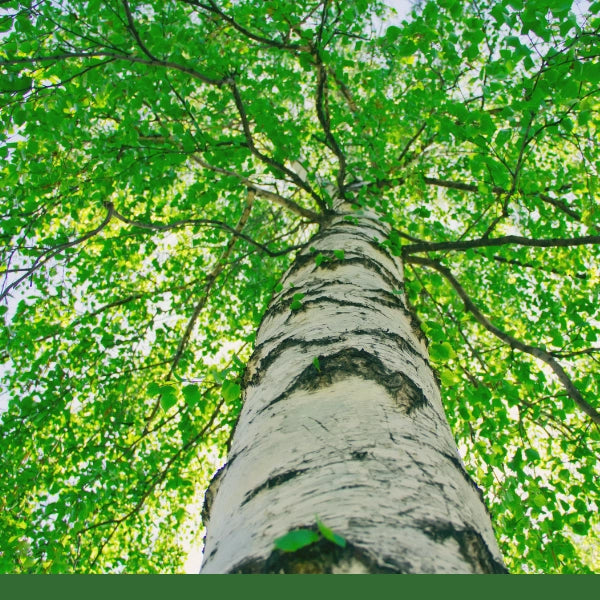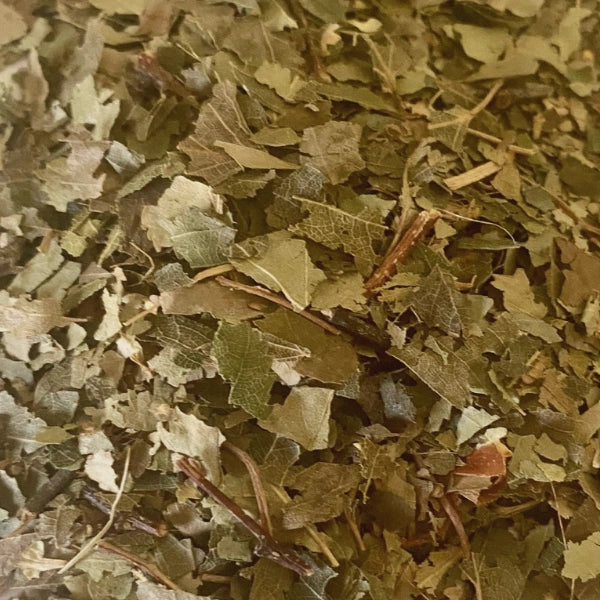Birch Leaf (Betula pendula) - Dried Herb, Organic
- Regular price
- $12.48
- Sale price
- $12.48
- Regular price
-
- Unit price
- per
Couldn't load pickup availability


Called the oldest tree in Britain, birch was a pioneer species when the ice caps retreated, moving in on the devastated land, growing quickly and then rotting to leave more fertile earth in which other species could take over. In its rapid life cycle birch pushes upward too fast to develop a strong heart wood, but this makes it perfect for making buckets and canoes. The name 'Birch; is a very ancient one, probably derived from the Sanskrit 'Bhurga' - 'a tree whose bark is used for writing on.' From its other uses for boat-building and roofing it is connected with the old word 'beorgan' ' - to protect or shelter.' Maude Grieve describes how 'the leaves have a peculiar, aromatic, agreeable odour and a bitter taste and have been employed in the form of an infusion (Birch tea) in gout, rheumatism and dropsy, and recommended as a reliable solvent of stone in the kidneys. The white birch is a favourite remedy in northern Europe, where it is abundant. Birch tree is known as a giving tree because it’s sap, leaves, bark, shoots, twigs and buds are all used for their medicinal properties.
Properties
The energetics and flavour of Birch leaf is bitter, pungent, astringent and cooling and birch has an affinity towards the urinary tract, joints and skin. For bladder issues combine birch leaf with Uva ursi leaf, Yarrow or Goldenrod. For possible joint issues or gout issues combine birch leaf with Nettle leaf, Celery seed or Turmeric root.
How to use:
Add 1 tsp of Birch leaf to one cup of boiling water. Infuse for 15 minutes, strain and drink up to three cups a day.
This information is for educational purposes only and is not intended to diagnose, treat or cure any disease or illness. Please consult your health care provider prior to the use of this product if you are pregnant, nursing, taking medications or have a medical condition. Individual results may vary.

